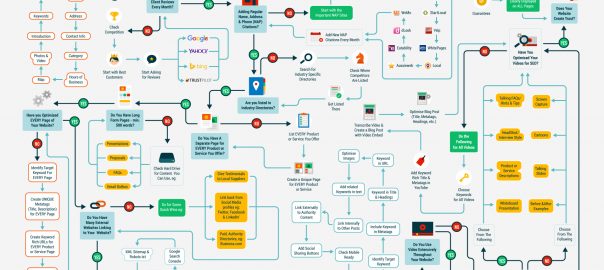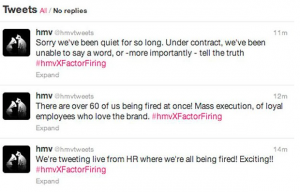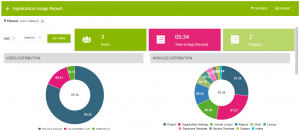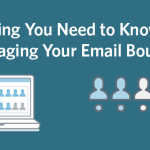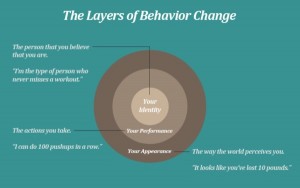If you run a local business then you don’t need me to tell you how competitive it is out there these days.
You’ve been running a local business for years. You work really hard and your customers love you. You love what you do and you’re a proud member of your local business community.
But there’s one thing that’s really bugging you. You’ve noticed that some newer competitors have sprung up and they seem to be getting the top rankings in the search engines.
How are they doing that? You’ve been around for years – surely you should be getting the top ranking.
But you’re really busy and the online marketing side of things isn’t really your thing.
But what if I told you that there is a predictable formula for getting top ranking that you can use.
Now I know you might be skeptical about this. You might be thinking that this is either going to be too complicated, too time consuming or too expensive.
But bear with me. I’ve prepared a step by step process that anyone can do. You can do it in your own time and at your own pace and it will give you amazing results.
So, are you ready to claim the top ranking in your area? Well read on because it’s all here in our Definitive Guide to Local SEO – print it off, stick it on the wall where you’ll see it and just tick off each step as you do it.

Embedded from Pickaweb
Set up And Optimize Local Listings
Here we’re talking Google My Business, Bing Place for Business and Yahoo Local.
But don’t just create your listing and think it’s done. You need to optimize it fully. That means adding all the information possible. As well as the obvious like name, address, hours of business and a map you need to add all the extras like keywords, photos and videos.
Get Reviews
Do a search on your industry and town in Google. Notice something that the top ranked sites have in common? You got it – reviews. The websites with the top listings generally have more reviews.
Just get into the habit of asking for reviews. Start with your best clients. You know who they are and the chances are they’d jump at the chance to give you five stars.
Don’t go crazy in the first week and get fifty reviews though or Google might think you’re trying to game the system. Just commit to picking up reviews steadily over time.
Get NAP Citations
NAP stands for Name, Address and Phone. Citations are just mentions of your business in local business listings that Google trusts.
Most of these are free but some will charge a fee. You need to make sure that your listings are correct and up to date so if you change your address or phone, be sure to update these.
There are dozens, even hundreds of NAP sites to choose from. Again, no need to go crazy, just choose the ones you want to go for each month and get listed there. Easy!
Industry/Niche Directories
Is there a specific industry directory that you can get listed in? Run a search in Google for them. Also check where your competitors are getting listed.
Getting listed in these directories sends strong signals to Google that you are in that industry or sector.
Maybe you have a professional or industry accreditation. Again, check these because they will usually offer you a free listing as part of your accreditation.
Or are you a member of a trade association. Again, double check these as they are quick easy wins for getting a valuable trusted link back to your site.
Create Separate Service Specific Pages
Check that you have a separate page for EVERY service that you offer. Don’t bunch them together on one generic ‘Services’ page.
The reason is that you mustn’t spread your content to thinly. If you have a particular page for each service then that sends a strong signal to Google to present that page when someone is searching for that service.
For example, if you are an printer and you offer lithographic printing, digital printing, poster priting, business card printing, t-shirt printing, etc., create individual pages for each rather than one page listing them all.
Add Content To Your Pages
Now that you have individual pages you need to add more content to them. A minimum of 500 words, but ideally 1000 words. Yes, you read that correctly.
Why? Google loves long pages with loads of relevant content.
Where do you get all that content? It’s probably on your hard drive, in your outbox, or up in your head.
Look at presentations you’ve done or think of frequently asked questions. Or just have an imaginary conversation with a prospective new client and write out the answers to the questions. This type of content is perfect for your service pages.
Optimize All Pages
Don’t let the jargon worry you. Optimization is just the process of presenting your website’s pages so that Google understands them.
Use the following list to guide you:
- Identify a keyword for each page (printer in TOWN)
- Create Metatags for each page (these just tell Google what that page is about)
- Add the keyword to the URL of each page (e.g. www.yourdomain.com/digital-printing-TOWN)
- Create an H1 Heading with the keyword for that page (Headings are like the ones you use in Microsoft Word or Google Docs to give structure to the page)
- Add your keywords to the text in a natural way and around 2 to 3% of the total text
- Link to the other pages from the text
Get Some Backlinks
Backlinks are when other websites link to your website. Google notices this and good links are a major factor in your ranking. Start with easy backlink wins. Things like:
- Your social media profiles allow you to link to your website
- Give testimonials to local suppliers and say they can link back to you to demonstrate it’s a genuine testimonial
- Consider high authority paid directories like Business.com
Get Fast, Secure Hosting
These days Google prefers faster, more secure websites. In fact both speed and security are Google ranking factors.
For faster hosting look no further than SSD Hosting. SSD stands for Solid State Drive and these are the future of data storage and are hundreds of times faster than traditional hard drives.
For security consider switching to HTTPS by setting up an SSL Certificate.
Go Mobile
The web is going mobile. Mobile is clearly the direction of travel and your customers and prospective customers are no longer just sitting at a desk browsing. They are out and about with their mobiles, tablets and other mobile devices.
Again, Google favours mobile friendly websites so the sooner you get this sorted the better.
You can either switch to Responsive Design or if budget is an issue then get a side by side mobile version of your website.
Get Blogging
Google prefers websites with more content. A blog is the best way to achieve this.
WordPress is free and is usually available as a one click install with most hosting companies.
Think of your service pages as being the sales pages of your website but your blog is an ongoing conversation with your customers and prospective customers.
Use your blog to post content of interest such as answering ‘How to’ type questions and use proven types of popular content such as:
- List based content
- Expert RoundUps
- Buyers Guides
- Product Reviews
- Local Guides / What’s On Guides
- Seasonal Content
- Product / Service comparisons
- ‘Best Of’ Content
- Best Practice
- Case Studies
The important thing is to create content consistently and regularly.
When you create content, make sure you optimize it in the same way you optimize your service pages using the checklist above.
Use Video
Video is very underused by local businesses. But there is a huge opportunity for those local businesses who take the time to create videos.
The reason is that there is much less competition. These days most mobile phones have excellent quality digital cameras so it could be as easy as videoing a quick repair or showing how to do a particular task or a short video where you explain a tip.
Keep them short – one to two minutes is fine. Once you’ve got them upload them to YouTube and then get the embed code from YouTube and add them to a blog post and transcribe the audio into text so that you have more written content.
Conclusion
Getting a high ranking in Google is achievable for any local business. You just need to approach it methodically and patiently.
Start with the local listings and make sure you optimize them. Start to pick up reviews and get them consistently. You’ll need NAP Citations and links from other websites. Start with industry websites and local suppliers.
Make sure you’re not spreading yourself too thinly – create service specific pages and make them long – minimum 500 words. Optimize all of your pages too so that Google can understand the content of each page.
Google like fast, secure websites. Switching to SSD hosting and get HTTPS hosting will give you a tick in each of these boxes.
Google rewards websites that create useful and engaging content on a regular basis. Adding a WordPress Blog section to your site will allow you to do this. Finally, start using video on your blog and include in your blog for extra content.
These are all realistic targets for any small business and over time you will definitely start to see positive results.
Digital & Social Articles on Business 2 Community(336)
Report Post